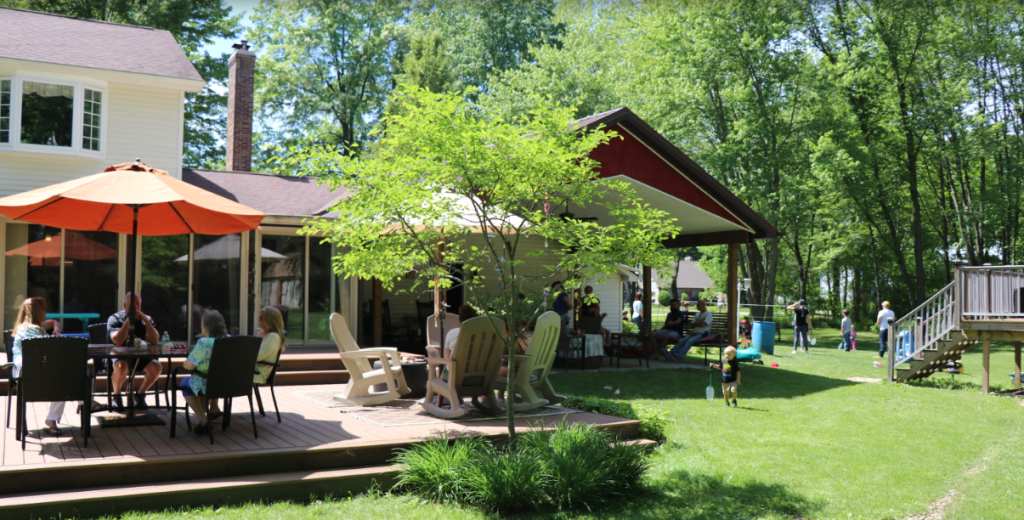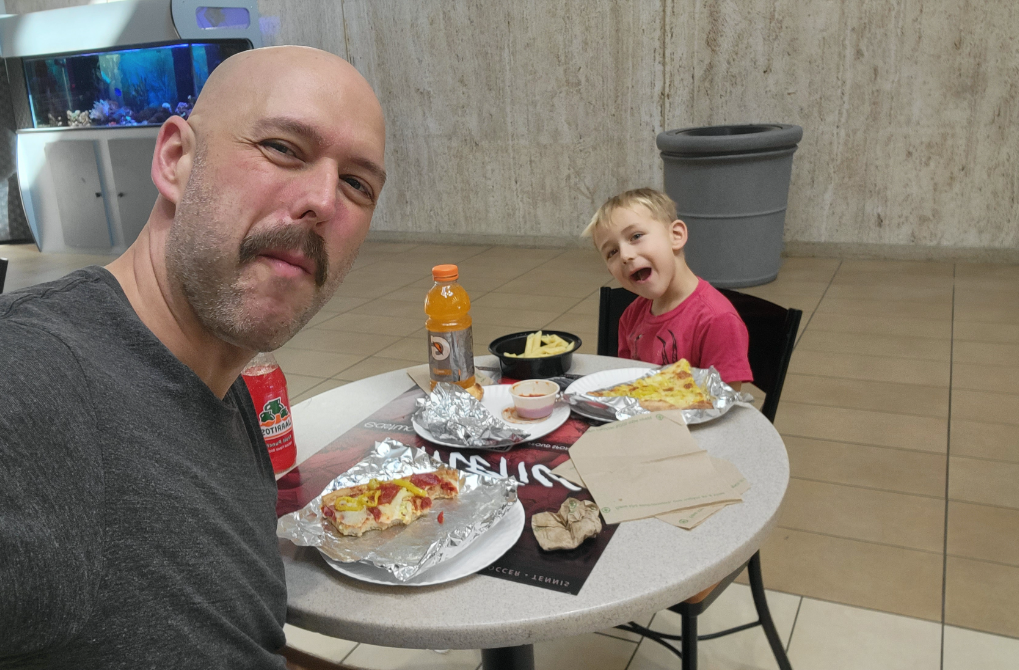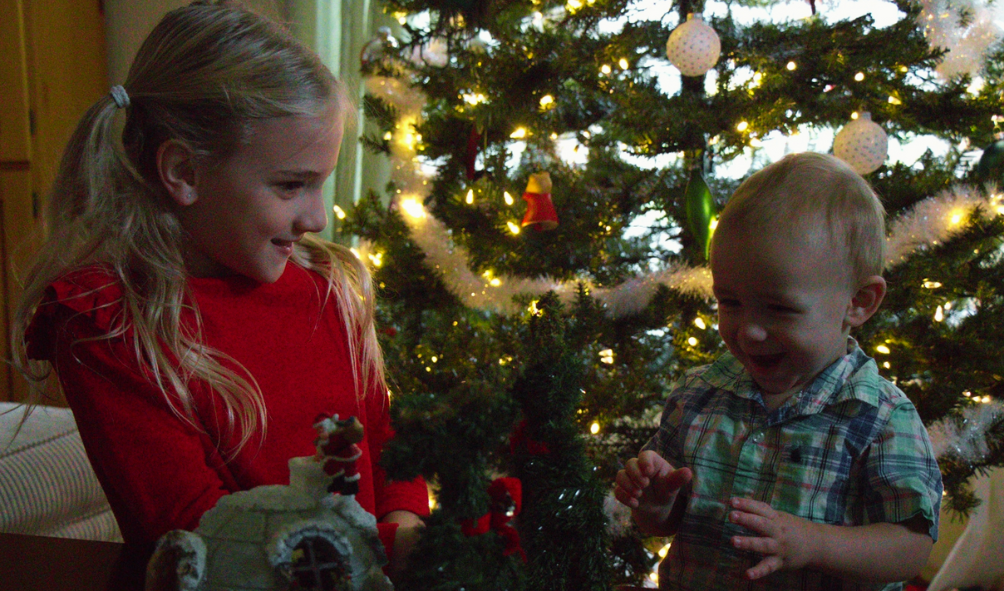Introduction:
Imagine the sound of your children’s laughter suddenly replaced by deafening silence. One day, you’re surrounded by their joy, their energy filling every corner of your life. The next, they’re gone, leaving behind an empty house and a heart full of unanswered questions.
When my wife left, taking our kids with her, it felt like my entire world fell apart. Up until that moment, my life had revolved around my family—every day was filled with the laughter of my children, playing outside, going for bike rides, or sitting down together for dinner.
Our evenings were simple yet fulfilling, and weekends were all about family time. We took trips together, made memories together, and I was deeply involved in every aspect of my kids’ lives.
But when they were gone, the silence was deafening. The loneliness cut deeper than anything I had ever known. I went from the constant warmth and activity of family life to an empty home where every room echoed with memories. The pain was overwhelming, and in those first few months, I didn’t know how to go on.
The sudden shift from connection to isolation was unbearable.
As the days turned into weeks, I realized that I had two choices: let the loneliness consume me, or find a way to fight back. The journey wasn’t easy, and there were countless moments when I thought about giving up. But through the darkness, I began to see that my fight wasn’t just for me—it was for my son. This is the story of how I chose to fight, starting with the support system that helped me through those dark days.
Support System:
In those dark days, I quickly realized that I couldn’t do it alone. The overwhelming loneliness was more than I could bear on my own, and it became clear that my survival depended on the people around me. My parents were my lifeline.

I vividly remember the night everything fell apart—my wife had just left, and I was spiraling. I called my parents, and they immediately rushed to my side, talking me down from the edge as I struggled to comprehend what had just happened.
A few weeks later, on a Sunday morning, I found myself on the brink again, teetering between despair and hopelessness. My mom, sensing the urgency in my voice, missed church that day to come over and sit with me in my living room. We talked for hours—about Becca, the kids, life, and the trauma we both had experienced. It was one of those raw, honest conversations where everything is laid bare. My mom’s presence, her willingness to just sit and be there with me, made all the difference.
My dad also stepped up in ways I hadn’t expected. One day, we took a drive out toward Ashtabula, just the two of us. As we drove, I poured out my heart, explaining how I didn’t need solutions—I just needed someone to be there with me, to acknowledge how much this situation sucked without trying to fix it. That conversation changed our relationship; from that moment on, my dad stopped trying to give advice and instead just listened, offering the understanding and empathy I so desperately needed.
Rachel, my best friend, was another pillar of strength. She’s the kind of person who tells it like it is, unfiltered and real. When I was stuck on the idea of trying to save my marriage, she didn’t hold back. She helped me see that I deserved better, that maybe getting back together with my ex wasn’t actually what was best for me. At the time, her words frustrated me because all I wanted was to save my family. But as time passed, I began to realize how much I had been putting myself on the back burner, always trying to appease Becca, never feeling like it was enough. Rachel’s blunt honesty was the catalyst I needed to start seeing my own worth again.
Tony, on the other hand, provided a different kind of support. We spent countless hours gaming together, often late into the night. There’s no particular moment that stands out, but rather the cumulative effect of those sessions. I remember one night, we played Lethal Company with some other friends, including Tristan and his crew. It was a rare moment of pure fun amidst the chaos of my life—a brief escape where I could just enjoy myself and forget, even if just for a little while. Tony’s consistent presence, his willingness to just be there and play, gave me a sense of normalcy and connection that was incredibly grounding.
Then there was my counselor, who played an instrumental role in my journey toward healing. One of the most pivotal moments in our sessions was when we discussed codependency. It was the first time I really understood what it meant and realized how much I had been relying on others for my sense of self-worth and happiness. That realization was a turning point—it helped me start focusing on finding happiness within myself and enjoying my own company, something I had never truly done before.
Having a strong support system is crucial when dealing with loneliness and other life challenges.
It’s important to reach out to those who care about you—whether family, friends, or professionals. Let them be there for you, and don’t be afraid to lean on them during tough times. Support systems aren’t just about getting advice; sometimes, it’s about having someone who will sit with you in the pain, acknowledge your feelings, and remind you of your worth. If you don’t have a support system, consider seeking out communities or professional help that can provide the encouragement and stability you need.
Faith and Spirituality:
During the darkest days of my separation, I found myself turning back to a faith that I had walked away from over a decade earlier.

After years of distance from God, it was this painful experience that drew me back. I started incorporating daily prayer and scripture reading into my morning routine, seeking comfort and answers in those quiet moments. In the beginning, my prayers were filled with pleas—”Why is this happening to me?” and “Please save my marriage, my family.” Although I didn’t always feel like I received the answers I wanted, there was a deep sense of comfort in knowing that someone was listening, even if the response wasn’t what I had hoped for.
As time went on, I began to realize that, while I couldn’t control what was happening around me, I could control how I responded to it. I started to understand that God wasn’t punishing me or causing these events, but rather, He was using them to help me grow. There’s a scripture that says, “All things work together for good to those who love God,” and that became a source of peace for me. It reminded me that even in the midst of the deepest pain, there can still be good that comes out of it.
One thing I’ve learned through this experience is the importance of having a personal relationship with God. In today’s world, many people have negative perceptions of God and Christianity, often shaped by the actions of others or by hearsay. But it’s crucial to understand that God is nothing but love and goodness. The Bible tells us that “every good and perfect gift is from above,” and that Christ came so that we might have life and have it more abundantly. If you’re struggling with your faith or with negative thoughts about God, I encourage you to seek Him personally. Don’t let others’ opinions or actions shape your understanding of who God is—discover for yourself the love and peace that He offers.
This realization shifted how I approached my prayers and my relationship with God. Instead of just asking for things to change, I began to seek understanding and strength. I found peace in knowing that, while I couldn’t control other people’s actions—or even fully control my own—God could bring good out of any situation. That sense of peace, and the knowledge that I wasn’t alone in my struggles, became a vital part of how I coped with the loneliness and pain of that time.
Perspective Shift:
As I navigated the loneliness and challenges of being a single dad, my perspective on solitude began to shift.
Two key experiences were pivotal in this change: understanding codependency through counseling and reconnecting with my faith. In counseling, I began to question why I placed so much weight on others’ approval and started to confront my own imperfections. This self-reflection helped me realize that everyone has flaws, and rather than chasing perfection or seeking constant validation, I could start accepting myself as I am.
This realization was reinforced by my renewed connection with God. Diving back into prayer and scripture made me see that perfection isn’t something I need to achieve; it’s about the journey of self-improvement and trusting God to guide me. Instead of hating myself for my flaws, I began to appreciate them as part of my growth. This shift allowed me to be more honest with myself without self-hatred, focusing on improving while leaving the rest in God’s hands.
As a result, my interactions with others began to change. I no longer felt the need to bend over backward to gain approval or fear setting boundaries. One specific instance was when a neighborhood woman expressed interest in me. In the past, I would have avoided telling her I wasn’t interested out of fear of rejection or hurting her feelings. However, this time, I was able to be honest about my feelings, expressing that I was content being single and focusing on being a parent. To my surprise, she respected my honesty, and we developed a friendship that likely wouldn’t have existed had I not been open and set that boundary.
Over time, I also found myself enjoying my own company more. While I’m still an extrovert who enjoys being around others, the anxiety and fear of being alone have significantly diminished. I’ve learned to appreciate activities like walking alone, where I can reflect on my thoughts and connect with myself in ways that weren’t possible when I was constantly seeking the company of others.
Through this journey, I’ve come to understand that loneliness doesn’t have to be a negative experience. By embracing solitude, setting boundaries, and learning to respect yourself, you can transform loneliness into a time of personal growth. It’s important to recognize that seeking validation from others can often lead to self-doubt. Instead, focus on building a strong relationship with yourself and, if applicable, your faith. Treat getting to know yourself like you would a new relationship—ask yourself questions, explore your thoughts, and embrace your flaws. In doing so, you may discover that being alone is an opportunity to uncover new aspects of yourself and develop a deeper sense of self-worth.
Advice for Others:
Struggling with loneliness as a single dad can be incredibly challenging, but a few key strategies have been instrumental for me and might help you too.
Prayer and Meditation: Incorporating these practices into your morning routine can be transformative. I found that starting the day by sitting with my thoughts and talking to God helped me gain clarity and emotional grounding. At first, it might seem like nothing is happening, but with consistency, these practices build up. Think of prayer as a conversation with God—like talking to a trusted friend. Meditation, on the other hand, is about being present with yourself, acknowledging your thoughts and feelings without judgment. Over time, this practice has taught me to manage my emotions better and approach my day with a clearer mind.
Counseling: Finding the right counselor is crucial. My journey with counseling wasn’t smooth at first—I tried it several times before finding the right fit. This is why I always encourage others not to give up if their first experience isn’t ideal. It may take time, but once you find someone you can truly open up to, the benefits can be life-changing. Counseling helps you confront and work through your thoughts and feelings in a safe, supportive environment.
If you’re hesitant about starting counseling, remember that it’s just a conversation with someone trained to help you navigate your emotions and challenges. There’s no shame in seeking help—it takes great courage. And if the first counselor you see doesn’t feel right, don’t hesitate to try someone else. Finding the right fit is essential, and once you do, the benefits can be truly life-changing.
Faith: My relationship with God has been a cornerstone in coping with loneliness. If you’re unsure where to start, focus on what the Bible says and build a personal relationship with God through prayer. Don’t just rely on what others tell you—seek Him out for yourself. Over time, I discovered that this direct relationship not only provided comfort but also gave me strength and purpose during difficult times.
Conclusion:
Loneliness as a single dad is a challenge that can feel all-encompassing, but it’s a challenge that can be met with resilience, faith, and self-discovery.

Throughout my journey, I learned that overcoming loneliness isn’t about erasing the pain but about transforming it into an opportunity for growth. Through prayer and meditation, I found a way to connect with my thoughts and emotions, learning to navigate the complexities of my inner world. Counseling provided me with a safe space to explore these thoughts, helping me to understand and confront the patterns that had kept me trapped in feelings of inadequacy and fear. Over time, I realized that the key to defeating loneliness lies not in avoiding it but in embracing it as a chance to truly know and love yourself.
Faith played a foundational role in this transformation. By reconnecting with God, I discovered a source of strength that helped me face the darkest moments with hope. This journey has taught me that even in the depths of loneliness, there is a path to happiness and fulfillment. It’s not about finding someone else to fill the void, but about filling it yourself—with purpose, love, and the knowledge that you are never truly alone.
If there’s one thing I’ve learned, it’s that progress is made one step at a time. It’s about showing up for yourself every day, even when it’s hard, and trusting that over time, these small steps will lead you to a place of peace and joy. Loneliness doesn’t have to be your enemy—it can be the catalyst that pushes you toward a deeper understanding of yourself and the life you truly want to live.
